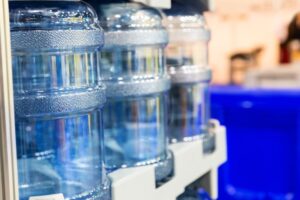Why Are Water Quality Testing Important?
Water quality testing is a valuable part of water safety management, and there are several reasons that it is important. The most important is that it can prevent contamination of the drinking water supply, but there are other advantages as well.
(Looking for Water Quality Testing Missoula MT? Contact us today!)

- Water supplies and pipes that are contaminated with harmful bacteria or chemicals can become a health hazard.
Many people who live in areas where water is regulated by the Environmental Protection Agency (EPA) or other agencies must undergo water quality testing at least once a year to make sure that their drinking water is safe and meets the EPA’s standards for contaminant levels. This helps ensure that everyone has access to clean, high-quality water.
- Water quality monitoring is essential for detecting microbial contaminants in the water supply and triggering remedial action that will protect the public’s health from those substances.
There are several types of water quality testing that can be carried out, but they all involve measuring some combination of physical, chemical and biological parameters. These include temperature, color, taste and odor, turbidity, and dissolved solids.
- Home test kits are an effective way to quickly determine if there is any microbial contamination in the water supply.
In the United States, home test kits include a variety of strips, colored disks, and digital instruments that can measure pH, temperature, total dissolved solids, and electrical conductivity. They can also measure salinity. These tools are inexpensive and can be found for less than US$15.
- Laboratory testing is a more accurate way to evaluate water quality, but it is time consuming and costly.
There are a few different types of laboratory tests that can be used to analyze the microbial content of water, including those that use a gas-powered UV light or an ELISA-based method. The most expensive are those that use an electrochemical method.
- Mobile labs can be useful in remote locations where there is no fixed laboratory facility available.
A well-equipped mobile laboratory can be a great way to get the water quality testing done quickly and accurately. However, they can be expensive, and they need to be maintained by an expert.
- Water suppliers and surveillance agencies with dedicated staff are more likely to perform better than those without such staff.
Among the 26 institutions studied, all had a strong water testing program (at least one staff member with responsibility for water testing). Most of these institutions had a high level of staff knowledge and experience in water testing. They were able to meet their testing targets and achieve their performance objectives.
- Water suppliers and surveillance agencies that had a strong water testing program were able to monitor their water safety management.
The study collaborating institutions were a mix of water supply organizations and surveillance agencies, covering 118 urban water supply networks and 343 public health districts across six African countries: Ethiopia, Guinea, Kenya, Senegal, Uganda, and Zambia. They were primarily located in urban settings, but they also included some regional and national water suppliers that served rural populations.

